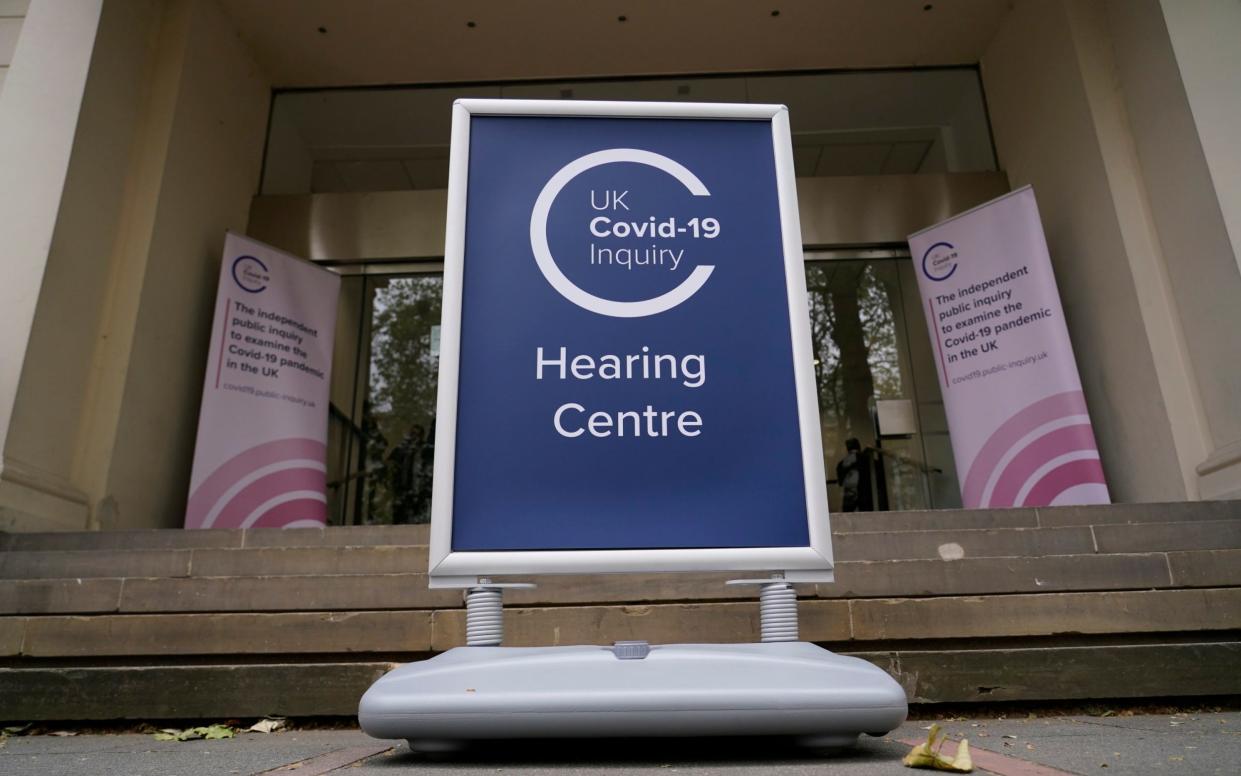Covid inquiry will only question pandemic planners for a few hours

The Government’s former pandemic planners will be the first witnesses to be questioned by the Covid Inquiry next week amid fears evidence sessions are too short.
Katharine Hammond, the former director of the civil contingencies secretariat in the Cabinet Office in the run up to the pandemic, is among those who will give testimony during the opening week of verbal evidence to the pandemic investigation.
The civil servant, who worked in the role between 2016 and 2020, previously gave evidence to the inquiry into the 2017 Grenfell Tower fire.
Bruce Mann, another former head of Civil Contingencies Secretariat of the Cabinet Office, who helped the country respond to the 2009 swine flu pandemic, will also give evidence next week.
While no prominent politicians will appear next week, lawyers representing victims said they were concerned about witnesses being given just a few hours to answer questions.
Elkan Abrahamson, head of major inquests and inquiries at Broudie Jackson Canter, who represents the Covid-19 Bereaved Families for Justice UK group, said: “While we understand the need to progress the inquiry swiftly, the length of time given to crucial testimony from senior decision makers should be commensurate to their role.
“The inquiry must be a proper exploratory exercise allowing the country to truly understand our response and learn from past mistakes, not a tick box exercise.”
Six weeks of hearings planned
The Inquiry has held a number of preliminary hearings to arrange how each of its separate phases will be conducted.
More than two years after the Inquiry was first announced, it will hold its first full hearing on Tuesday.
It will be the first of six weeks of hearings planned for the first module of the inquiry, which will focus on resilience and preparedness.
The session on Tuesday will open with a statement from chairwoman Baroness Hallett, followed by a short film showing the impact of the pandemic, according to a statement on the Covid inquiry’s website. The rest of the opening day will be taken up with the opening statements by the counsel to the inquiry and core participants. Epidemiologists Professor Jimmy Whitworth and Dr Charlotte Hammer will be the first to give evidence in person, starting on Wednesday afternoon. Professor David Heymann, Mr Mann, and Professor David Alexander will appear on Thursday.
On Friday, Professor Sir Michael Marmot and Professor Clare Bambra will give evidence before Ms Hammond’s afternoon appearance.
The investigation is split into six modules, with public hearings scheduled to conclude by summer 2026, with the first interim reports expected next year. While no prominent politicians will appear next week, lawyers representing victims said they were concerned about witnesses being given just a few hours to answer questions.
Baroness Hallett refusing to back down
Details of the Inquiry’s first witnesses, come amid a row between Baroness Hallett and the government over access to messages.
The Cabinet Office has said some of the information requested by the inquiry does not relate to the Government’s handling of coronavirus and is “unambiguously irrelevant”.
However, Baroness Hallett has refused to back down arguing it is for her to rule what is relevant to the investigation.
The High Court is expected to hear the Cabinet Office’s judicial review on or shortly after June 30.
The Cabinet Office has confirmed it intends to “share a schedule” for when it will submit WhatsApp messages from Mr Johnson to the inquiry, after being ordered to do so by Friday by Lady Hallett.
Cabinet Office minister Baroness Neville-Rolfe told the Lords: “Following the request of the chair, the Cabinet Office will share a schedule of WhatsApp messages by the end of this week and additional witness statements will follow.”
It is unclear whether the submitted messages will be unredacted, with the Cabinet Office previously choosing to censor WhatsApp correspondence handed over to the investigation.

 Yahoo News
Yahoo News 
